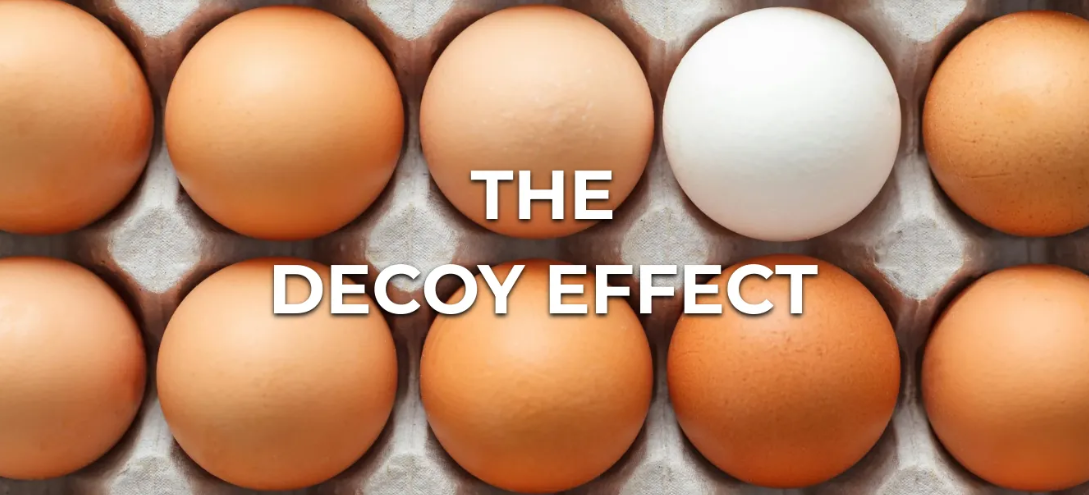Article
The Decoy Effect

We like to think we're rational decision-makers, carefully weighing costs and benefits. But what if our choices are easily swayed by the mere presence of an extra option?
That's the power of the Decoy Effect.
Behavioral economist Dan Ariely famously demonstrated this with magazine subscriptions. He offered students three choices: online-only ($59), print-only ($125), and print + online ($125). Most chose the combo deal—it seemed like a no-brainer.
But when he removed the print-only option (the decoy), preferences flipped! Suddenly, the cheaper online-only option became more popular.
Why? Because even if no one chose the decoy, it changed the frame of reference, making the combo seem like a steal. Without it, the true preference for affordability was revealed.
This highlights the Decoy Effect's power: a strategically placed "inferior" option can nudge us towards a specific choice, revealing the hidden forces that shape our decisions.
This psychological phenomenon can be strategically employed across various business situations. Let's explore three examples:
The Pricing Pyramid
A company offers three pricing tiers: a basic plan with limited features at a low price, a premium plan with all the bells and whistles at a high price, and a pro plan with slightly fewer features than the premium plan but at a price just below it. The pro plan serves as the decoy, making the premium plan seem like a more compelling value proposition. Check the options for any streaming service and you’ll likely see this at work.
The Product Trio
A retailer displays three similar products: a budget-friendly option, a high-end version, and a mid-range item with a price close to the premium option. The mid-range product acts as the decoy, making the most expensive item appear more desirable despite its higher price. This approach is especially common with sizes (beware of movie theatre popcorn).
The "Bundle Bonanza"
An online retailer offers a product individually, as part of a small bundle with a minor accessory, and as part of a larger bundle with several valuable accessories. The small bundle acts as the decoy, making the larger bundle seem like a much better deal and encouraging customers to opt for the more comprehensive package.
This month, we challenge you to harness the Decoy Effect in your professional life.
- Identify a Decision Point: Consider a situation where you aim to influence a choice, whether it's a product purchase, a service selection, or a negotiation.
- Craft the Decoy: Introduce a third option that is inferior to your preferred choice but only slightly less attractive than the alternative.
- Observe the Shift: Pay close attention to how the introduction of the decoy influences the perceived value of the other options.
Authored By:
 Ben Wise (top) and Darren Chiu (bottom) are the founders of Captivate, providing tools and techniques to increase your powers of persuasion. They are sought after speakers on the psychology of persuasion and have appeared at industry events, conferences and corporate training programs. To book them for an engagement, please reach out via LinkedIn.
Ben Wise (top) and Darren Chiu (bottom) are the founders of Captivate, providing tools and techniques to increase your powers of persuasion. They are sought after speakers on the psychology of persuasion and have appeared at industry events, conferences and corporate training programs. To book them for an engagement, please reach out via LinkedIn.
Latest Resources
Recommended Resources
- The Difference Between Loyalty and Retention
- How to Negotiate with Different Personality Types
- Key Follow-Up Strategies to Keep your Prospect Engaged
- Must-Have Prospecting Tools for Every Sales Person
- 5 Ways You Can Benefit from Sales Training
- Using the 3x3x3 Method to Learn About Your Prospects
- Good Questioning Skills
- Sales Value Quantification

